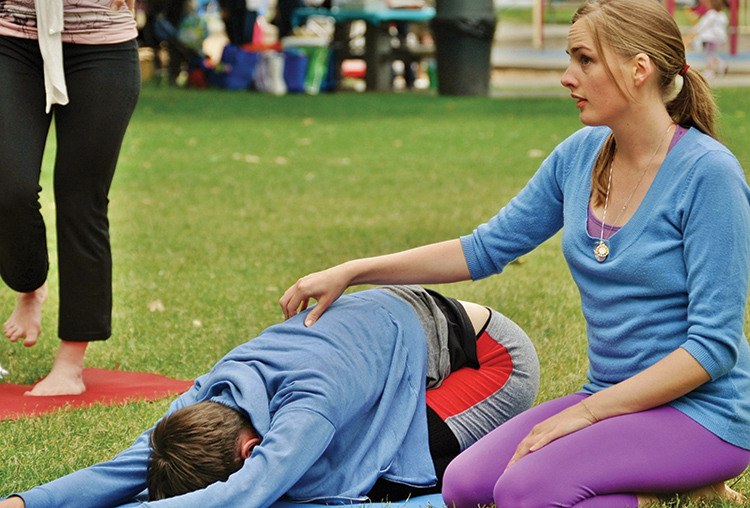Natalie Smith, ’05, brings yoga to the incarcerated

As an undergraduate at the University of Washington, Natalie Smith, ’05, first engaged in the practice of yoga at a University District studio. Today, she unlocks the ancient Indian practice for those who have precious little freedom.
Smith, 28, is executive director of Yoga Behind Bars, a non-profit organization that provides hundreds of free yoga classes inside Washington state prisons and jails.
Smith has taught more than 250 yoga classes to incarcerated youth and adults and trained more than 50 yoga teachers to teach inside Monroe Correctional Complex; Washington Corrections Center for Women in Gig Harbor; King County Juvenile Detention Facility; King County Correctional Facility; Echo Glen Children’s Center in Snoqualmie; and Seattle’s Therapeutic Health Services and Low Income Housing Institute. Plans for classes at another site—a housing community for women recently released from prison—are in the works.
“Yoga offers skills for managing an intense environment,” Smith says. “It is a way to calm one’s mind and cope with stress.”
Corrections staff agree. “The mindfulness and relaxation techniques fit our treatment model,” says Jo Simpson, recreational therapist at Echo Glen. “It’s also good exercise.”
The state’s prisons, which are often overcrowded, contain a disproportionate share of the poor and those suffering physical distress, drug addiction and mental illness. That’s why Yoga Behind Bars is proving to be so valuable. Earlier this year, the Riverstyx Foundation, a non-profit organization that promotes criminal-justice reform, gave Yoga Behind Bars a grant of nearly $100,000 to add more yoga classes. Current students say they are benefiting from the classes.
“During yoga class was the first time I ever paid attention to something that took my focus away from negative thoughts and left me feeling clear and calm,” one inmate wrote.
Echoed another: “This class helped me stretch, increased my flexibility, decreased my pain, and made me feel OK, and better about where I am. The letting- go exercise and mantra helped me spiritually and mentally.”
Whereas some people might look at prisoners disapprovingly, Smith, whose degree is in psychology, takes a compassionate view. “I look at my students with an incredible amount of love and respect,” she says. “They have untapped potential.”
Smith doesn’t view herself as separate from the community, including those in prison. “We are not isolated lumps of flesh,” she says. “We are all connected.”